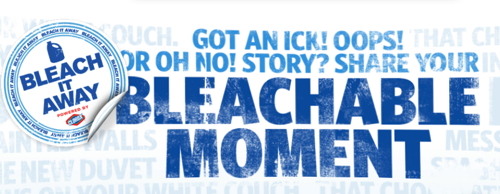Hygiene
Bleachable Moments
The makers of Clorox Bleach are urging everyone on the internet to share their "bleachable moment." Because who hasn't shared a special moment with their bottle of bleach? Like the time you tried to hide those blood stains, perhaps, or had to clean up after an ebola outbreak.
Posted By: Alex - Wed Jul 31, 2013 -
Comments (2)
Category: Hygiene, Advertising
Follies of the Madmen #209

Mysterious infinite regress indicates magnitude of the horror of bad breath?
Original ad here.
Posted By: Paul - Tue Jul 30, 2013 -
Comments (4)
Category: Body, Business, Advertising, Products, Hygiene, Surrealism, 1940s
The No-Bathing Weekend
Ludwick Marishane, inventor of DryBath Bath-substituting™ skin gel, has been trying to raise money to promote the DryBath™ No-Bathing Weekend. The idea is that you buy his DryBath sachets and simultaneously pledge not to wash with water for a couple of days. He hopes this will "bring awareness to the billions of people who don’t have water to bathe when their health depends on it."To sweeten the deal, Ludwick made his own pledge:
1. If we reach the campaign target of 1 million skipped baths...I will not bathe for 1 month
2. If we skip 2 million baths...I will not bathe for 3 months.
3. If we skip 20 million baths...I will not bathe for a YEAR!
But it looks like Ludwick hoped to raise $500,000 and only got $761. This means (I assume) that he'll continue to be taking baths every day.
Posted By: Alex - Sun Jul 21, 2013 -
Comments (4)
Category: Hygiene, Baths, Showers and Other Cleansing Methods
Boryeong Mud Festival
Can you get to Korea today for this week-long "adventurous silt extreme training experience"?
Posted By: Paul - Fri Jul 19, 2013 -
Comments (5)
Category: Hygiene, Parades and Festivals, Asia
Mouth Guard Cleaners, Past & Present
The demure product of today versus the bold product of the past (1962). Which would you choose for your pressing oral hygiene & "mouthpiece filth" needs?
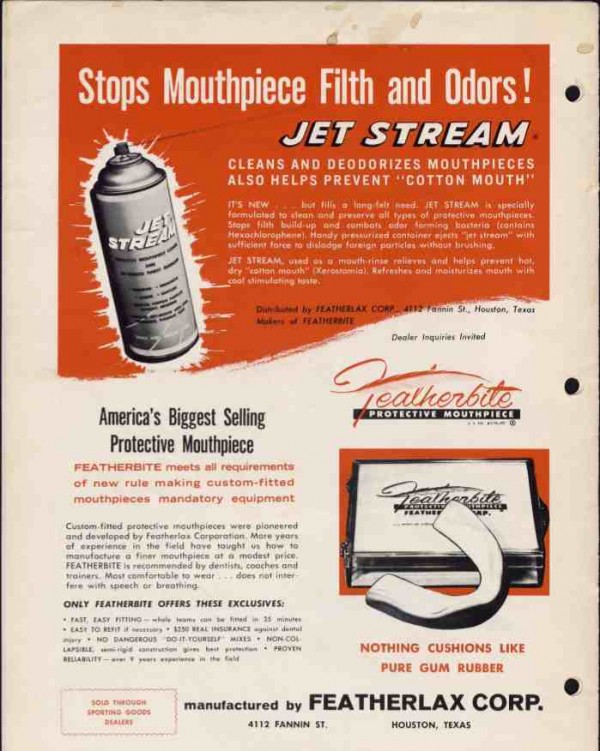
Posted By: Paul - Sat Jun 22, 2013 -
Comments (1)
Category: Business, Advertising, Products, Hygiene, 1960s
Decorated Urinal Cakes
Urinal cakes given makeovers to look like real cakes. From the Carmichael Collective.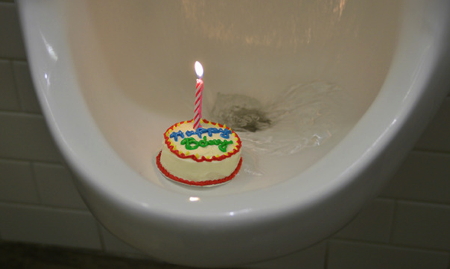
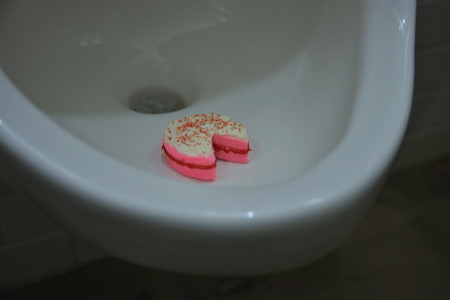
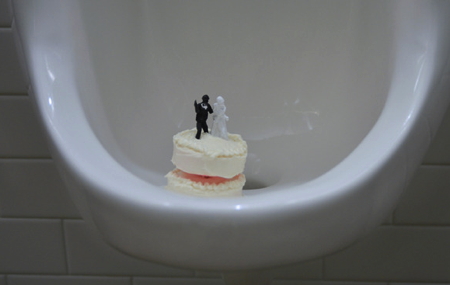
Posted By: Alex - Sun Jun 02, 2013 -
Comments (2)
Category: Food, Hygiene, Body Fluids
Baths, and How to Take Them
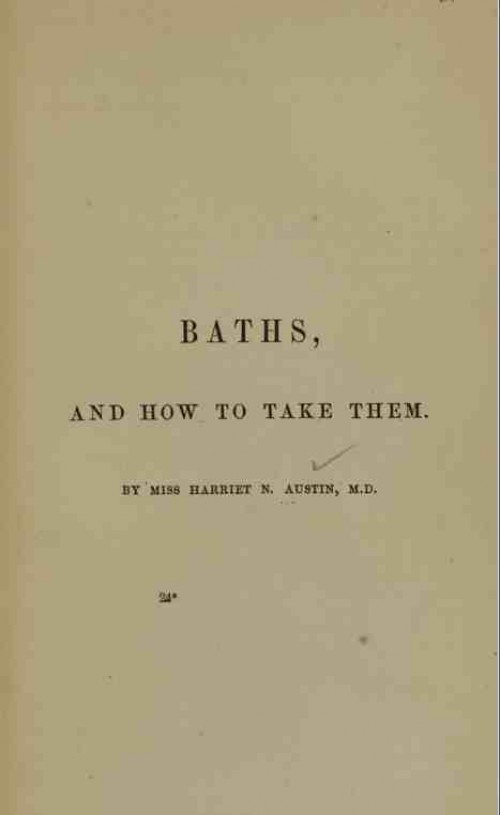
Entire small pamphlet here. Learn what you've been doing wrong.
Posted By: Paul - Sun Jun 02, 2013 -
Comments (4)
Category: Body, Education, Hygiene, Baths, Showers and Other Cleansing Methods, Nineteenth Century
What’s in the pool?
CDC researchers recently published a study of contaminants found in public pools (in the metro-Atlanta area). It's worth reading if you plan to take a dip in a public pool this summer. Here are the highlights:The detection of E. coli in over half of filter backwash samples indicates that swimmers frequently introduced fecal material into pools and thus might transmit infectious pathogens to others... A single diarrheal contamination incident can introduce 107–108 Cryptosporidium oocysts into the water, a quantity sufficient to cause infection if a mouthful of water from a typical pool is ingested.
The frequent occurrence of fecal contamination of pools documented in this study... underscore the need for improved swimmer hygiene (e.g., taking a pre-swim shower and not swimming when ill with diarrhea). This study also found that the proportion of samples positive for E. coli significantly differed between membership/club and municipal pools. This finding might reflect differences in the number of swimmers who are either diapered children or children learning toileting skills.
Posted By: Alex - Sun May 19, 2013 -
Comments (8)
Category: Hygiene, Excrement, Swimming, Snorkeling, and Diving
Go Diaper Free Week
The week of April 21-27 has been declared "Go Diaper Free! Week." Next week will be "Scrub Your Carpet Clean Week."
Posted By: Alex - Tue Apr 23, 2013 -
Comments (12)
Category: Babies, Holidays, Hygiene, Body Fluids, Excrement
Fine dining in a lavatory
London's Attendant Cafe, which opened last month, has a concept that it hopes will attract the curious. It's situated in a former public lavatory, and instead of trying to play that down, it's playing it up. So none of the old toilet fixtures have been removed. Instead, countertops were installed around them. Patrons can munch on "super gourmet sandwiches, salads, coffee and cakes" while perched in front of a urinal.The challenge for the restaurant will be to overcome what psychologists call the law of contagion. "Once in contact, always in contact." That is, once an object is associated with something offensive, such as a urinal being associated with urine, it will always maintain that association in our minds, no matter how clean the urinal is. [nydailynews]

Posted By: Alex - Tue Mar 05, 2013 -
Comments (7)
Category: Food, Hygiene, Body Fluids, Restaurants

| Who We Are |
|---|
| Alex Boese Alex is the creator and curator of the Museum of Hoaxes. He's also the author of various weird, non-fiction, science-themed books such as Elephants on Acid and Psychedelic Apes. Paul Di Filippo Paul has been paid to put weird ideas into fictional form for over thirty years, in his career as a noted science fiction writer. He has recently begun blogging on many curious topics with three fellow writers at The Inferior 4+1. Contact Us |

